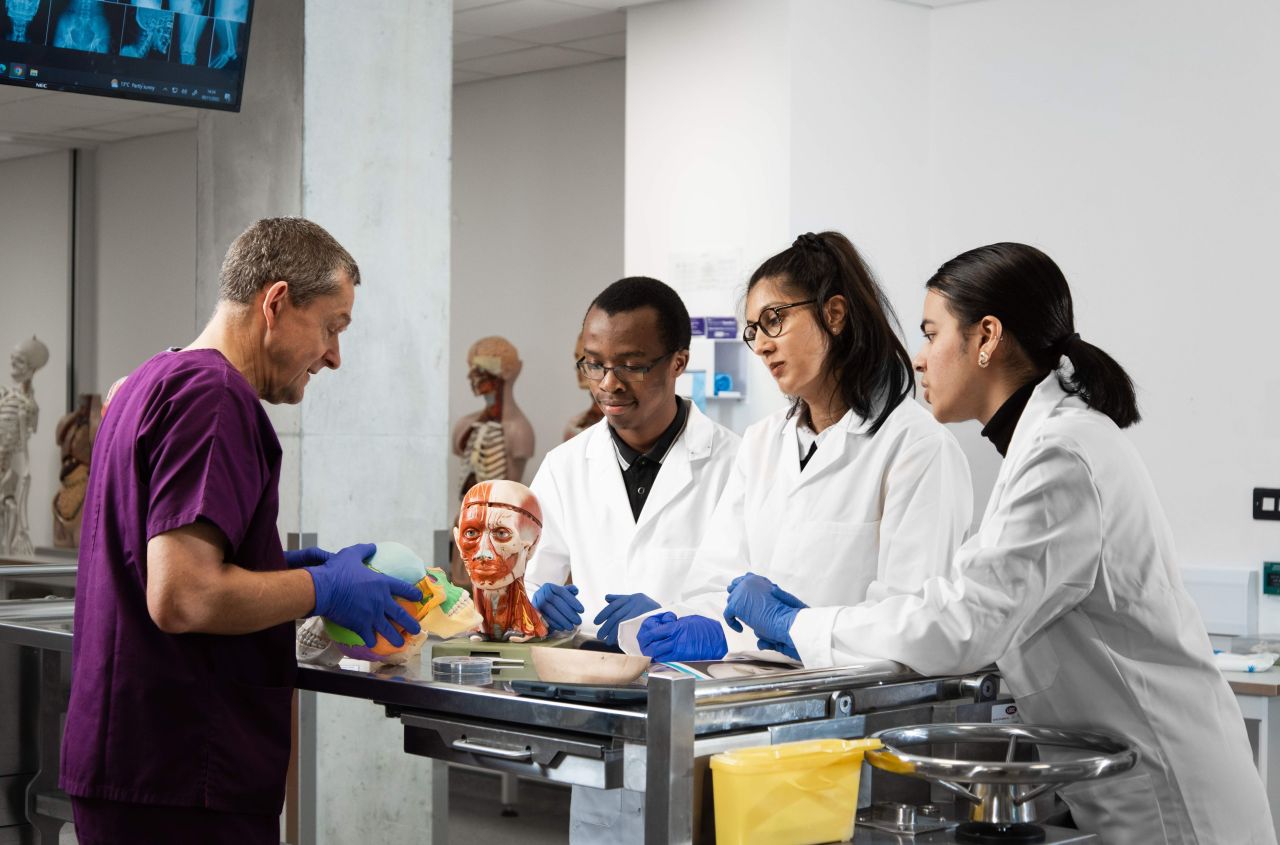Community and Primary Care in Practice 1 (20 credits)
Aims to integrate clinical learning with theory learnt in adjacent modules in Year 1. Gives an overview of the professionals, services and care pathways that support patients and their carers within the community.
Content is primarily based around the Fundamental Tracks of Ethics, Law & Professionalism, Human Behaviour, Person & Population Health and Professional & Clinical Skills.
Professional Development and Person-Centred Practice 1 (20 credits)
Aims to enable students to appreciate the needs of their patients, themselves as practitioners and the wider healthcare professional community.
Content is primarily based around the Fundamental Tracks of Ethics, Law & Professionalism, Human Behaviour, Person & Population Health, Professional & Clinical Skills and Scholarship & Scientific Enquiry.
Foundations of Health and Disease (20 credits)
Enables understanding of the fundamental structure and function of the human body. Aims to describe the psychological development of humans from infancy to adulthood. It aims to introduce basic principles of disease and diagnostics.
Content is based around the Fundamental Tracks of Anatomy, Biomedicine, Human Behaviour, Person & Population Health, Pharmacology & Therapeutics, Physiology and Pathology.
Skills for Clinical Practice 1 (20 credits)
Aims to prepare students for learning in the clinical environment through the development of clinical and professional skills.
Content is primarily based on the Fundamental Track of Professional & Clinical Skills.
Heart, Lungs and Blood (20 credits)
Aims to introduce the structure and function of the lungs and cardiovascular system, common and serious pathology and aetiology, diagnosis and principles of management of associated diseases.
Content is based around the Fundamental Tracks of Anatomy, Biomedicine, Pathology, Person & Population Health, Pharmacology & Therapeutics and Physiology.
Nutrition, Metabolism and Excretion (20 credits)
Aims to introduce the structure and function of the alimentary and excretory systems at the anatomical, cellular and molecular level in health. Introduces common and serious pathology and aetiology, diagnosis and principles of management of associated diseases.
Content is based around the Fundamental Tracks of Anatomy, Biomedicine, Pathology, Person & Population Health, Pharmacology & Therapeutics and Physiology.
